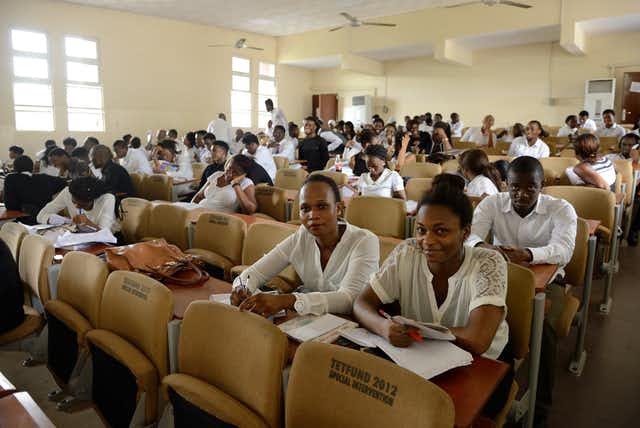Educational Issues
School Exams on Students; Effects and Solutions -By Halima Abdullahi Ahmad
Obviously, examination has affected students negatively in every stage of school. Researchers have shown that students are usually nervous when it comes to writing examination, as almost 70percent of students cannot readily memorize what is been taught. Some students are vocal and sensitive.

Different types of exams are conducted all over the world for evaluating a person’s skills and intelligence.Why do teachers conduct exams for all students? Irrespective of age, sex or worse of all ability, students are made to write exams all over the globe. Researchers have shown that exams was first established by a phychologist and a businessman named Henry Fishel in the late 19th century. Life today has become so complex, that exams come to play an important role in one’s educational career. The importance placed on exams are so high that students always become nervous when writing it. It is not sarcastic or exaggerating, that exams are hated by many and loved by few. Spirit of competition are among the importance of exams, thereby it pushes the limit of a person’s ability to do more and to do the best. More so, exams helps in detecting teaching flaws. In addition, it helps to develop personality and confidence in students.
Aside the benefits of exams, there should also be some effects as well. The way we take exams as the only alternative for assessment cannot be over-emphasized, it is an understatement to undermine the disadvantages of exams in students. Some of which are; health problems, comparison among students, loss of confidence and also, it generates depression.
There are scholars whom criticise exams as not the real test of knowledge. They stressed that, there are some certain measures which are relatively superficial knowledge or learning which totally defects the purpose of exams. A person with fewer grades may turn out to be successful person while a good grader may end up unsuccessful in life.
Exams may be a formality, hence students are yet to identify the real purposes of examinations. For such students, passing their exams is a formality to entering into good schools and colleges. Therefore, they are all learning just for the sake of formality. In addition, pressure attributed to exams may creates disinterest in schools. e.g exhaustion, stress and other problems related to examinations create fear and hatred which in turns leads to loss of interest and faith in studies.
More so, examinophobia, which is the fear of exams is genuine if you regularly become excessively nervous before or doing an important exam. This is a very common phenomena among students especially when an important exam is approaching next to them.
Other ways of assessing students may include self-record keeping. A safety record keeping programme will help you to set goals, measure progress, pin-point areas needing attention and identify areas that are successful in preventing work related injuries and illness. Similarly, portfolios assessment should be adopted. This is the systematic, longitudinal collection of student’s work created in relation to the same criteria. In addition, we should embrace peer assessment. This is a process whereby students or their peers’ grade are assigned or test based on a teacher’s benchmark. The practice is employed to save the teacher’s time and improve the student’s understanding of course materials as well as improving their meta-cognitive skills.
Obviously, examination has affected students negatively in every stage of school. Researchers have shown that students are usually nervous when it comes to writing examination, as almost 70percent of students cannot readily memorize what is been taught. Some students are vocal and sensitive.
In conclusion, exams have good and bad sides, but it depends on how a person deals with them. Exams can be constructive and destructive. The intensity or the side effect of using exams as the only way of assessing students is fully displayed and influential. There should be an alternative assessment which will help to evaluates, or measures a student’s level of proficiency in a subjects. examination should not be the only alternative assessment for our educational system. In some developed countries they attach less importance to exams, they focus more on students intellect and skills.
















